
It might be the longest planning phase for a metro system ever. The 8 million inhabitants city is heavily suffering from the lack of rail mass transit, as the transport needs can hardly be compensated by buses. The 24 km metro line would be the first metro in the Colombian capital. At the end of October 2019, the winner of the tender for the construction and operation of the line has been announced: The so-called APCA Transmimetro consortium, including China Harbour Engineering, Bombardier and the Xi’An Metro Company is the winner.
The route will run from Portal de las Américas in the southwest to the 72nd street in the north – in Bogotá, the streets are numbered in ascending south-north direction. While the initial plans presented in 2014 envisaged the line being completely in tunnels, the planning has been changed in 2016 to an elevated alignment in order to save costs and minimize geological risks.
Years and decades of planning
For decades, the city of Bogotá has been trying to implement a metro system, but bureaucracy, financial discrepancies and corruption avoided to move ahead until now. The first plans for a subway system in Bogotá go back to the 1940s. However, a realization was postponed for various political and financial reasons. The main load of public transport in Bogotá today is carried by the Bus Rapid Transit System “Transmilenio”. With a route network of 113 km on the main lines and a 663 km long feeder network and a bus fleet of 2027 articulated and double articulated buses and 947 feeder vehicles, it transports ca. 2.5 million passengers per day and thus one of the largest and most frequented BRTs Systems worldwide.
The planning for the current metro line started in 2008, however the project was delayed. The current project has been prepared with local and governmental bodies involved in the financing of 780 million Euros. For this, the project company “Metro de Bogota” has been founded. According to press reports, the total project will cost 4.3 billion US-Dollar (ca. 3.91 billion Euros) of which 480 million US-Dollar (ca. 436 million Euros) are coming from a loan of the European Investment Bank (EIB).
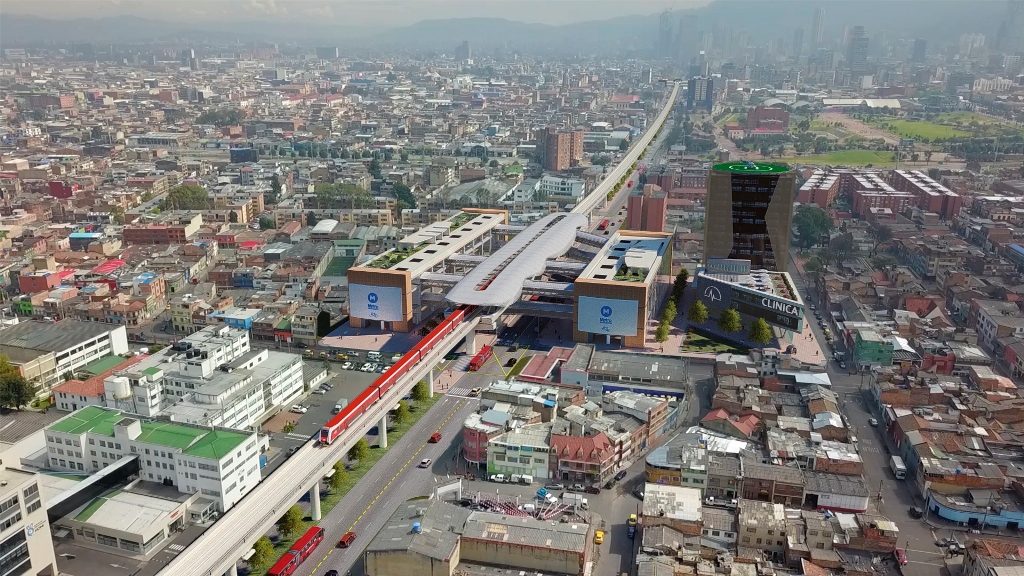
Rendering of Bogotá’s first metro line I © Metro de Bogotá 
Rendering of one of the future stations I © Metro de Bogotá 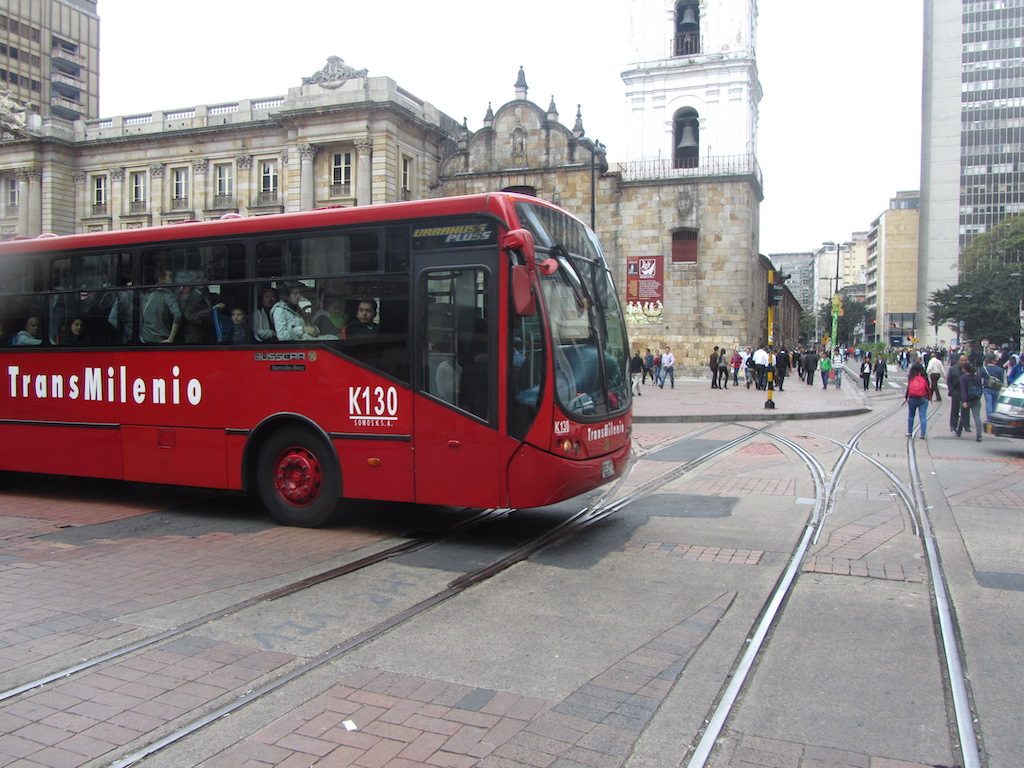
Bogotá used to have a tram until 1951 – today, the Transmilenio Bus Rapid Transit buses are carrying the large portion of Bogotá’s transport mix I © UTM 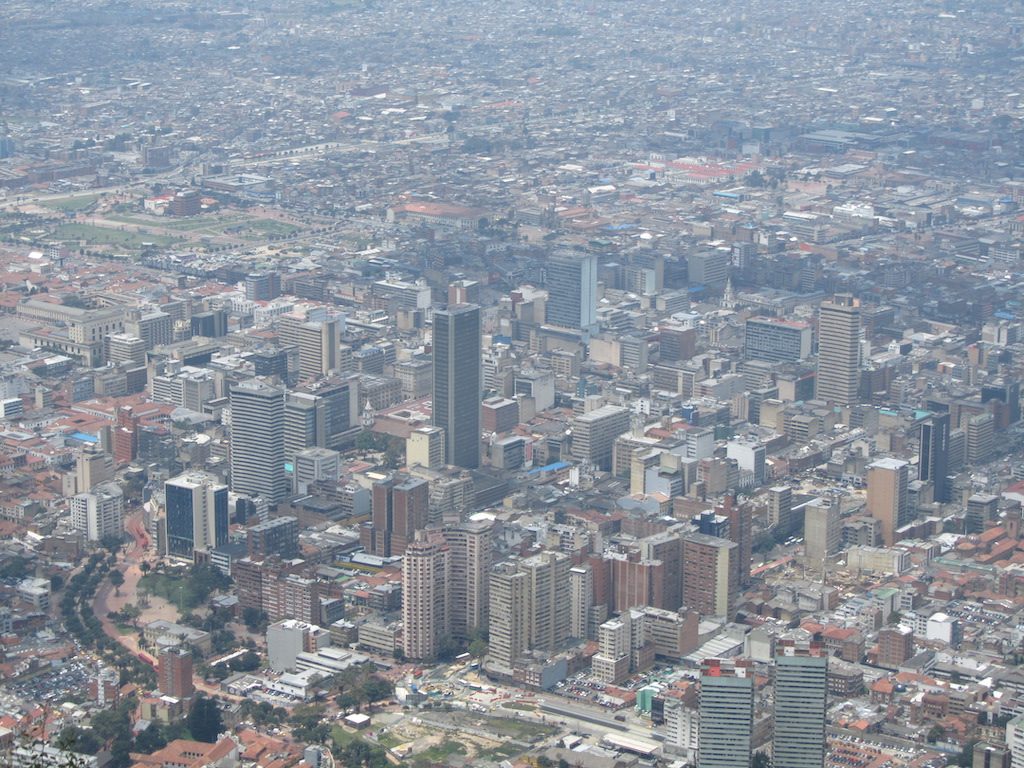
Bogotá is one of the few latin american capitals which does not have a metro system I © UTM
The planning for the current metro line started in 2008, however the project was delayed. The current project has been prepared with local and governmental bodies involved in the financing of 780 million Euros. For this, the project company “Metro de Bogota” has been founded. According to press reports, the total project will cost 4.3 billion US-Dollar (ca. 3.91 billion Euros) of which 480 million US-Dollar (ca. 436 million Euros) are coming from a loan of the European Investment Bank (EIB).
The tender
The tender process for the construction and operation contract started on 28 June 2019. At this point, a total of six consortia had reached the pre-qualification stage, comprising Consorcio Metro de Bogota, APCA Metro Capital, Consorcio Sunrise, APCA TransMimetro, Consorcio Linea 1, and Union Metro Capital.
- Consorcio Metro de Bogota: FCC Concesiones de Infraestructura, Carso Infraestructura y Construccion, Promotora del Desarrollo de America Latina
- APCA Metro Capita: Controladora de Operaciones de Infraestructura, ICA Constructora, Power China International Group Limited Sucursal Colombia, Siemens Project Ventures, Strukton Integrale Projecten)
- Consorcio Sunrise: Acciona Construccion, Impregilo International Infrastructures, Ansaldo, Hitachi Rail Italy
- APCA Transmimetro: China Harbour Engineering, Xi’an Metro, Bombardier
- Consorcio Linea 1: Obrascon Huarte Lain S.A. Sucursal Colombia, Andrade Gutierrez Engenhaira S.A. Sucursal Colombia, Camargo Correa Infra Construcoes, CCR
- Union Metro Capital: Sacyr Concesiones Colombia, Construcciones y Auxiliar de Ferrocarriles CAF Colombia, Hyundai Engineering & Construction Co Ltd Sucursal Colombia, STOA
Proposals were submitted September 2019 and the announcement of the winner has been announced at the end of October 2019. Construction is expected to begin in March 2020, with the metro system due to enter operation in 2025. Demolition of building in order to make space for the 13.5 metre high viaduct has already started in October 2019.
A Chinese-Canadian engineering consortium has been awarded the contract to build Bogotá’s metro. The APCA Transmimetro consortium was left with the tender for the construction, operation and maintenance for 25 years of the metro system. The APCA Transmimetro consortium includes China Harbour Engineering, Bombardier and the Xi’An Metro Company and scored an evaluation of 100 out of 100 points. To this point, the detailed scope split has not been disclosed.
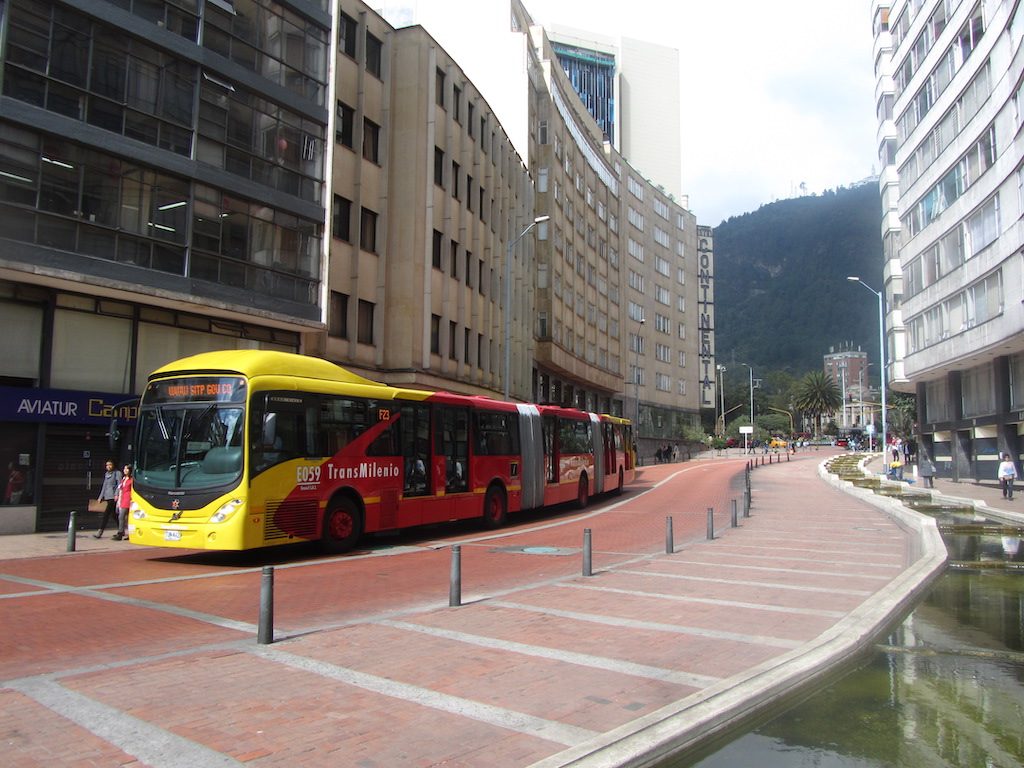
The Transmilenio Bus Rapid Transit system is operated by over 2,000 buses today I © UTM 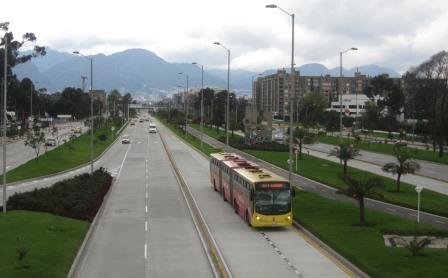
Since the year 2008, Transmilenio has been operating bi-articulated Volvo buses in order to increase capacity I © UTM
The first metro line
The line will be operated with 23 trains and will have a capacity of 72,000 passengers per hour, per direction. The total travel time will be of 27 minutes. But most importantly, it has been highlighted that the 88% of the alignment is running through lower-income districts and hence improving equality in the city.
A depot is fore seen at the southwestern terminus with a capacity for up to 60 trains. For the time being, the fleet will consist in 30 x 6- and 7-car trains which will have a length of 60 metres each and a width of 2.90 metres.
The opening is foreseen for the year 2025 and will not replace the existing Transmilenio system, but compliment it. Bogota is one of the few Latin American capital cities that has no metro. Every day, 12.7 million journeys are taking place in Bogotá.
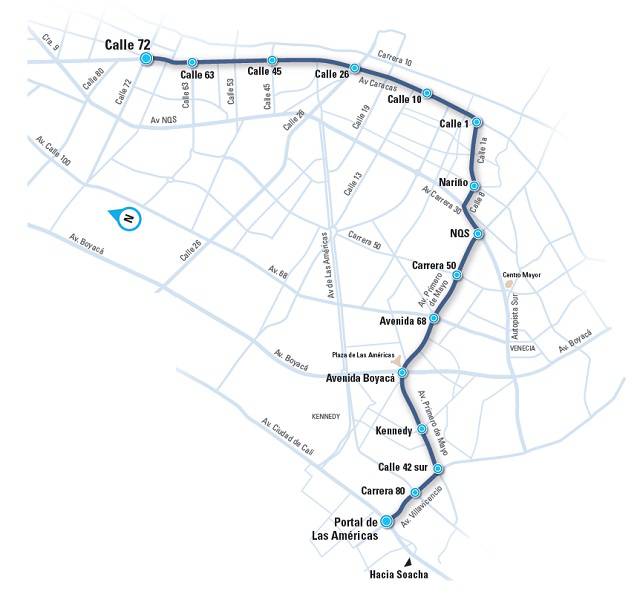
Map of Bogotá’s first metro line – it is common in Bogotá to “turn” the map view for geographical reaons I © Metro de Bogotá


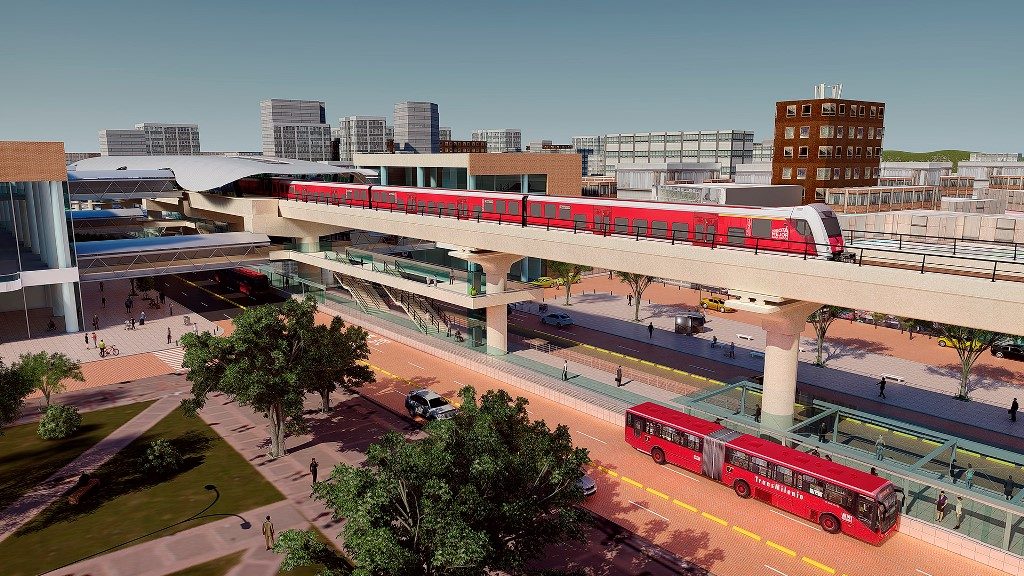
I can only think of one city with even longer planning for a metro system: Belgrade, with plans dating back to the ’20s and 30s
[…] Luckily, however, despite being a sprawling metropolis, much of Bogotá is a walking city and the building of a sparkling new metro system with the capacity for 72,000 passengers an hour is finally underway (it’s only been 77-years in […]